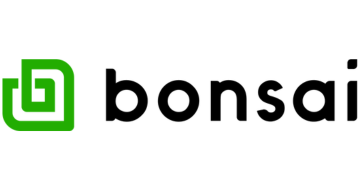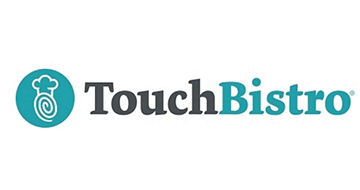
| Starting price | $9/mo |
|---|---|
| Pricing model | Per User |
| Free Trial | No |
| Free Version | Yes |
Discover the power of operations management software to streamline your business operations and increase efficiency. Find the best value operations management solution for your needs to streamline processes, increase productivity and gain real-time insight into your operations.
Unleash the full potential of your business operations with our hand-picked selection of top-rated business management software. Browse our list to find the best value operations management software to streamline and improve your business operations.

| Starting price | $9/mo |
|---|---|
| Pricing model | Per User |
| Free Trial | No |
| Free Version | Yes |

| Starting price | $17/month |
|---|---|
| Pricing model | Per User |
| Free Trial | Yes |
| Free Version | No |

| Starting Price | $69/month |
|---|---|
| Pricing Model | Subscriber based |
| Free Trial | No |
| Free Version | No |
Operations management software is an enterprise management solution that assists in managing business practices to help streamline day-to-day operations for maximum efficiency.
Operations management software is instrumental in helping your team improve their performance and focus on priority tasks for your business’ growth. An operations management system works to unify different departments within your company to ensure that all departments are working towards the same goals.
An operations management system should make all of the information needed for the production, distribution, and fulfillment of your products available to all departments, ensuring that all departments are aware of the goals they must meet, such as fulfilling customer or client demand.
You can use operations management software for production-based elements of a business. It can also be instrumental in increasing the efficiency of enterprise resource planning, administration, information systems, supply chain management, inventory management, and more.
Here are some of the functions performed by operations management software:
To provide an objective assessment, we use the Genius Score — a rating system that ranges from 0 to 100. The Genius Score is calculated based on a combination of external assessments and internal testing. For a detailed understanding of our methodology, please visit our rating methodology page.
Many elements make up an operations management system. Here are some of the most significant features you should look out for in an operations management software product:
This section will discuss some of the primary reasons you might consider investing in operations management software for your business. Moreover, we will explore how to use the software and the benefits of these purposes.
Operations management software unifies several different departments within your business. The vast amount of information housed under an operations management system could be overwhelming, so let’s discuss how you can use operations management software.
You can use operations management software to establish the most effective production schedules based on the KPIs of your production data. You will be able to manage your production performance and the cost of production.
You must align your workforce with specific targets and goals. By housing all workforce management on one platform throughout the different departments of your business, you can create a more unified workforce.
The operations management system will allow you to create workforce schedules and performance reports. It can facilitate instant messaging to ensure your workforce is up-to-date on the task at hand.
The ability to predict and forecast your sales figures can have a tremendous impact on the efficiency of your planning.
You can predict your sales forecasts using operations management software, and the software will help you analyze production costs and inventory carrying costs. By leveraging this data, you can streamline your operations and make better decisions regarding expenses.
We have covered how you can use operations management software in your business; let’s cover some of the significant benefits your company will receive from implementing operations management software.
Effective scheduling is essential to ensure that your production is consistently in line with the schedule. Your operations management software will help you generate several programs, allowing you to make the executive decision on the program you choose.
Efficient scheduling considers material requirements, workforce requirements, and sales orders. You will completely synchronize your scheduling by optimizing production scheduling, workforce scheduling, and material order scheduling.
By housing information from the different departments of your business in one place, you will be able to enhance collaboration and communication throughout your business. Some operations management software comes with built-in instant communication, allowing your team to be aware of the tasks at hand and communicate fluidly.
Operations management software can help you ensure your products’ quality by creating form-based quality charts. Operations management software will also help you schedule regular quality assessment checks and escalate alerts regarding faulty or low-quality products. Quality assurance is instrumental in your business’s reputation.
Here are some business types that would benefit from implementing operations management software.
eCommerce is a thriving business sector. Operations management software is helping eCommerce business leaders to create a more cohesive workforce, bringing together sales, marketing, logistics, manufacturing, fulfillment, and more. By uniting the departments of your eCommerce business under one platform, you can streamline your business operations to ensure that time, resources, and money aren’t going to waste.
Manufacturing businesses are responsible for keeping up with demands, managing their workforce, and ensuring materials are supplied on time. Operations management software can help these businesses streamline their processes, ensuring that there are no defects with product design or product supply aligns with product design.
Whether your business is small or large, operations management software can help you analyze data and forecast customer and client demands, establish more cooperation and collaboration between different departments in your workforce and optimize your scheduling. Operations management software ensures the total efficiency of your daily operations, freeing up your time to focus on growing and expanding your business.
If you are a small startup with relatively few employees, you may be able to access a free version of the software you’re considering. However, not all operations management software has a free version, and the free version may not offer you as many features.
One of the most significant factors to consider when determining the cost of your operations management software is the size of your business. The size of your business usually determines operations management software pricing. The software will come in the following sizes: